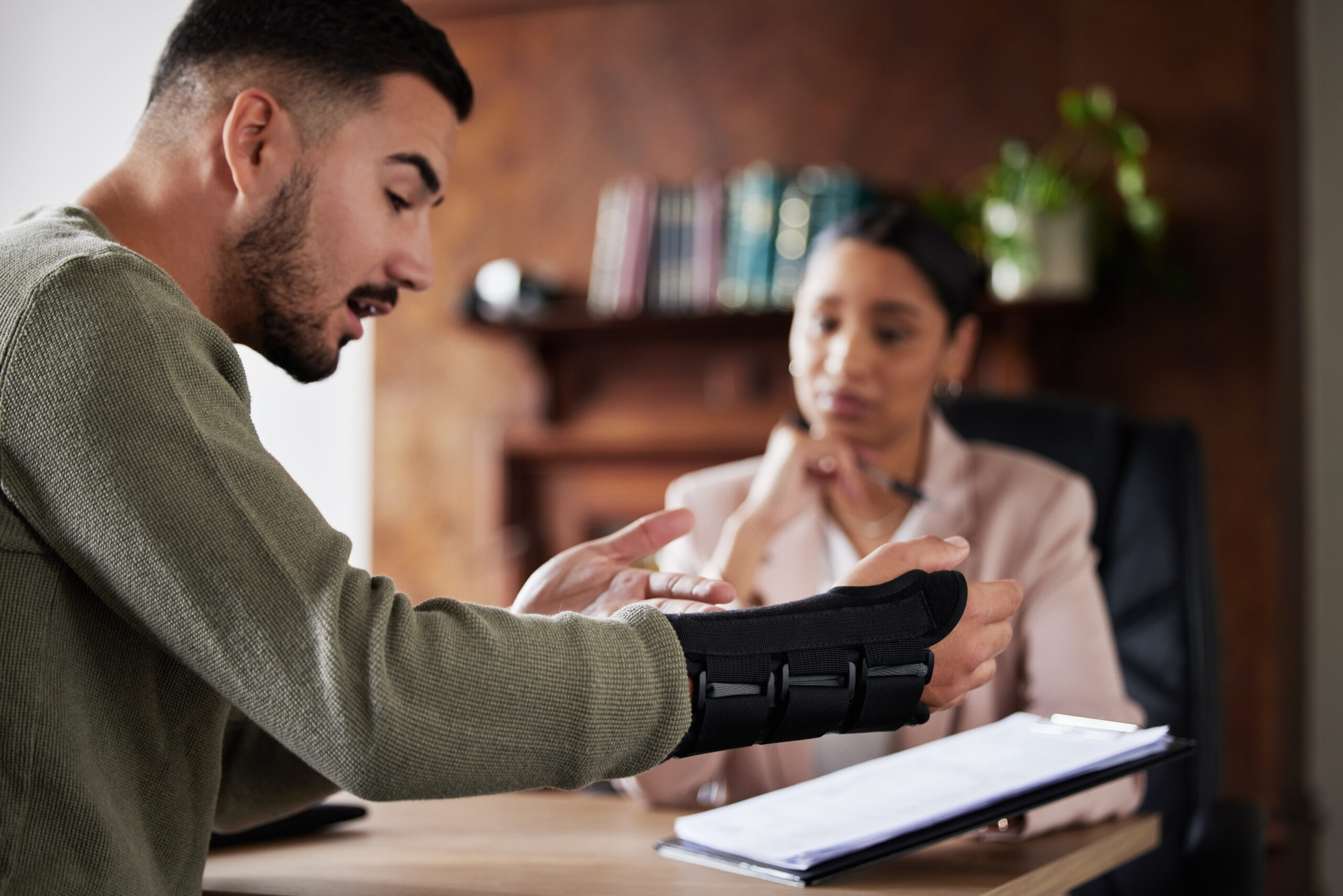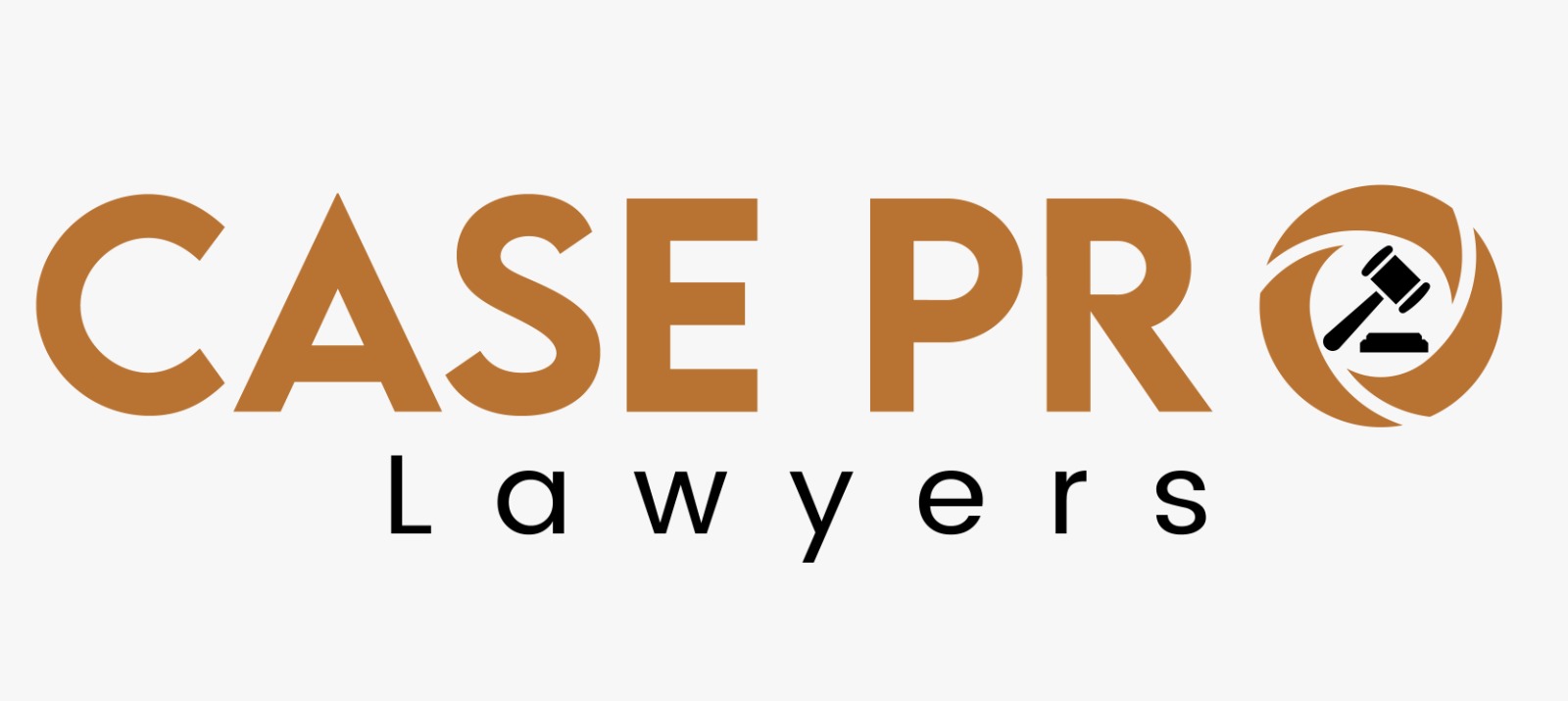Case Pro Practice Areas
Case Pro Practice Areas
Law Firm with relevant Case Studies!
Case Pro Lawyers demonstrate client acquisition & retention rates above average industry standards. Request a

Personal Injury Law
Justice for the Injured—Fighting for the Compensation You Deserve
An unexpected injury can turn your life upside down—physically, emotionally, and financially. At Case Pro Lawyers, we understand the challenges you face, and we are committed to helping you rebuild your life with strength, dignity, and financial security.
If you or a loved one has suffered due to someone else’s negligence, you need a relentless advocate who will fight for the maximum compensation you deserve. Whether you were injured in a car accident, workplace incident, medical malpractice case, slip and fall, or any other act of negligence, we stand by your side, ensuring that insurance companies, corporations, and liable parties are held accountable.
With years of proven success in securing substantial settlements and verdicts, we provide compassionate yet aggressive representation to help you recover damages for medical bills, lost wages, pain and suffering, and more.
At Case Pro Lawyers, we work on a contingency fee basis—which means you don’t pay unless we win your case. Let us handle the legal battle while you focus on healing.
📞 Contact us today for a free consultation and take the first step toward justice. Your fight is our fight.
Personal Injury Law: A Comprehensive Definition
Personal injury law is a branch of civil law that allows individuals to seek compensation for injuries or damages caused by another party’s negligence, recklessness, or intentional wrongdoing. It is designed to protect victims by holding responsible parties legally and financially accountable for the harm they cause.
Personal injury cases can arise from car accidents, workplace incidents, defective products, medical malpractice, slip and fall accidents, wrongful death, and more. The primary goal of personal injury law is to restore the victim as much as possible to their pre-accident condition by awarding monetary damages for medical expenses, lost income, pain and suffering, emotional distress, and other losses.
Key Elements of a Personal Injury Claim
1. Duty of Care
The defendant (at-fault party) must have had a legal duty to act with reasonable care to prevent harm. This duty varies depending on the situation:
Drivers must obey traffic laws and drive safely.
Property owners must maintain safe premises for visitors.
Doctors must provide proper medical treatment under professional standards.
2. Breach of Duty
The plaintiff must show that the defendant failed to uphold their duty of care, either through negligence, reckless behavior, or intentional misconduct. Examples include:
A driver running a red light and causing a crash.
A store owner failing to clean up a spill, leading to a slip-and-fall accident.
A doctor misdiagnosing a patient due to negligence.
3. Causation
The plaintiff must prove that the defendant’s actions directly caused the injury. If the injury would have occurred regardless of the defendant’s behavior, the claim may not be valid.
There are two types of causation:
Actual Cause – The injury would not have happened but for the defendant’s negligence.
Proximate Cause – The injury was a foreseeable consequence of the defendant’s actions.
4. Damages
The plaintiff must have suffered actual harm (physical, emotional, or financial losses) due to the defendant’s actions. These losses can include:
Medical expenses (hospital bills, rehabilitation, surgeries).
Lost wages and future earning capacity.
Pain and suffering (physical pain, emotional trauma).
Property damage (vehicle repairs, destroyed belongings).
If no damages exist, there is no valid personal injury claim.
Types of Personal Injury Cases
Personal injury law covers a broad range of accidents and incidents, including:
1. Motor Vehicle Accidents
Car accidents – Often caused by speeding, distracted driving, DUI, or reckless behavior.
Truck accidents – Often involve severe injuries due to the size and weight of commercial vehicles.
Motorcycle accidents – Motorcyclists are at higher risk of catastrophic injuries.
Pedestrian and bicycle accidents – Often result in serious or fatal injuries due to lack of protection.
2. Premises Liability (Slip and Fall Accidents)
Property owners have a duty to maintain safe conditions. If a person is injured due to hazards such as wet floors, poor lighting, or uneven sidewalks, the owner may be held liable.
3. Medical Malpractice
Doctors, nurses, hospitals, and other healthcare providers can be held accountable for negligent medical care that leads to patient harm. Common cases include:
-
Misdiagnosis or delayed diagnosis
-
Surgical errors
-
Medication mistakes
-
Birth injuries
-
Failure to obtain informed consent
4. Product Liability (Defective Products)
Manufacturers, distributors, and retailers can be held responsible for selling unsafe products, including:
-
Defective auto parts (brakes, airbags, tires).
-
Dangerous pharmaceuticals or medical devices.
-
Faulty consumer goods (electronics, children’s toys).
5. Workplace Accidents
Employees injured on the job may be entitled to workers’ compensation, but in some cases, they may file a personal injury lawsuit against a negligent third party (e.g., equipment manufacturers, subcontractors).
6. Wrongful Death
If a person dies due to another party’s negligence or intentional act, their family may file a wrongful death lawsuit to recover compensation for funeral expenses, lost income, and emotional suffering.
Compensation in Personal Injury Cases
Victims of personal injury can seek economic and non-economic damages, and in some cases, punitive damages.
1. Economic Damages (Tangible Losses)
Medical bills (past and future treatments, rehabilitation, surgery).
Lost wages (compensation for time missed from work).
Loss of earning capacity (if injuries prevent future employment).
Property damage (vehicle repairs, replacement costs).
2. Non-Economic Damages (Intangible Losses)
Pain and suffering (physical pain, chronic injuries).
Emotional distress (anxiety, PTSD, depression).
Loss of enjoyment of life (if injuries prevent hobbies or daily activities).
Loss of companionship (for spouses and family members in wrongful death cases).
3. Punitive Damages
In cases of gross negligence or intentional harm, courts may award punitive damages to punish the defendant and deter similar conduct (e.g., DUI accidents, fraud in medical malpractice).
Statute of Limitations for Personal Injury Claims
Every state has a time limit (statute of limitations) for filing a personal injury lawsuit, usually ranging from 1 to 4 years from the date of injury. Missing this deadline may prevent a victim from seeking compensation.
Exceptions may apply in cases of:
Delayed injuries (e.g., internal injuries discovered later).
Minors (time limit may not begin until they turn 18).
Fraud or concealment by the responsible party.
Why Personal Injury Law Matters
Personal injury law serves three key purposes:
✅ Protects victims by ensuring they receive financial compensation for their suffering.
✅ Holds negligent parties accountable, discouraging reckless behavior.
✅ Encourages safety and responsibility, making society safer for everyone.
Victims often struggle with medical expenses, lost income, and emotional trauma, making legal representation crucial in securing the compensation they deserve.
Conclusion
Personal injury law is an essential area of civil law that provides justice and financial relief to individuals harmed by negligence, recklessness, or intentional misconduct. From car accidents to medical malpractice, product liability, and wrongful death claims, personal injury law ensures that victims have the legal right to recover compensation and rebuild their lives.
If you have been injured due to someone else’s negligence, seeking experienced legal representation can make all the difference in maximizing your compensation and securing justice.
📞 Injured? Get a Free Consultation Today!
At Case Pro Lawyers, we fight to maximize your compensation and protect your rights. Contact us today for a free, no-obligation case evaluation—because your recovery matters.


A personal injury case arises when an individual suffers physical, emotional, or financial harm due to someone else’s negligence, recklessness, or intentional wrongdoing. The injured party (plaintiff) may seek compensation for medical bills, lost wages, pain and suffering, and other damages.
Common personal injury cases include:
Car, truck, motorcycle, and pedestrian accidents
Slip and fall accidents (premises liability)
Medical malpractice
Defective products (product liability)
Workplace injuries (third-party liability claims)
Wrongful death
Dog bites and animal attacks
Assault and intentional harm cases
You may have a case if:
✔ Someone owed you a duty of care (e.g., a driver must follow traffic laws).
✔ That duty was breached through negligence or recklessness.
✔ The breach caused your injury (e.g., a car accident led to a broken leg).
✔ You suffered damages (medical bills, lost wages, pain and suffering).
A personal injury attorney can evaluate your case and determine its strength.
The value of your case depends on:
Medical expenses (past and future treatments)
Lost wages and future earning capacity
Pain and suffering (physical pain, emotional distress)
Property damage (e.g., vehicle repairs)
Punitive damages (if negligence was extreme)
Each case is unique, and an attorney can help assess your potential compensation.
While you are not required to have a lawyer, personal injury attorneys can:
Negotiate with insurance companies to maximize compensation.
Prove negligence through evidence and expert testimony.
File lawsuits and represent you in court if necessary.
Ensure all legal deadlines are met (statute of limitations).
Hiring an attorney increases the likelihood of a successful settlement or verdict.
Each state has a statute of limitations (time limit) for filing a claim, typically 1 to 6 years from the date of injury. Some exceptions may apply, such as:
Discovery rule (if injuries were not immediately apparent).
Minors (the clock may start when they turn 18).
Fraud or concealment (if the at-fault party hid evidence).
Missing the deadline may prevent you from seeking compensation.
If you are injured, follow these steps:
1️⃣ Seek medical attention – Your health comes first, and medical records are vital evidence.
2️⃣ Document the incident – Take photos, gather witness contacts, and write down details.
3️⃣ Report the accident – Notify the police, employer, or property owner, depending on the situation.
4️⃣ Avoid admitting fault – Even an apology can be used against you.
5️⃣ Consult a personal injury lawyer – Protect your rights and explore your legal options.
You may still recover compensation, depending on your state’s laws:
Comparative negligence states reduce your compensation based on your percentage of fault (e.g., if you are 20% at fault, you receive 80% of the damages).
Contributory negligence states bar recovery if you are even 1% at fault.
A lawyer can fight to minimize your liability and maximize your compensation.
The timeline varies, depending on:
The complexity of the case (severe injuries may require more medical treatment).
Settlement negotiations (some cases settle in months, while others take years).
Court proceedings (if a lawsuit is filed, it may take longer).
Simple cases may settle within a few months, while complex cases can take years.
Be cautious! Insurance companies often offer lowball settlements to save money. Before accepting any offer:
✔ Review the full extent of your medical treatment and future costs.
✔ Consider lost wages and emotional suffering.
✔ Consult a personal injury lawyer to negotiate a fair settlement.
Once you accept a settlement, you cannot ask for more money later.
If a fair settlement cannot be reached, your case may go to trial, where:
Your attorney presents evidence, witnesses, and expert testimony.
The defense presents their case.
A judge or jury decides the outcome.
Most personal injury cases settle before trial, but having a lawyer prepared for litigation strengthens your case.
Most personal injury lawyers work on a contingency fee basis, meaning:
✅ No upfront fees
✅ You only pay if you win
✅ The lawyer’s fee is a percentage of your settlement
This ensures that injury victims can afford legal representation.
Yes, a wrongful death lawsuit can be filed by the deceased’s family members, seeking compensation for:
Funeral and burial expenses
Loss of financial support
Loss of companionship
Medical expenses before death
A lawyer can help determine eligibility and navigate the legal process.
If the at-fault party is uninsured or underinsured, options include:
Your uninsured/underinsured motorist coverage (for car accidents).
Filing a personal lawsuit against the responsible party (if they have assets).
Exploring third-party liability (e.g., an employer, property owner, or manufacturer).
A lawyer can help identify all available compensation sources.
Product liability cases involve holding manufacturers, distributors, or retailers accountable for defective products, such as:
Defective car parts (brakes, airbags).
Dangerous pharmaceuticals or medical devices.
Faulty electronics (fire hazards).
Victims can seek compensation for injuries, medical expenses, and product-related losses.
Yes, you can recover damages for emotional distress and mental anguish, especially if the injury caused:
Severe anxiety, PTSD, or depression.
Permanent disfigurement or disability.
Loss of enjoyment of life.
Mental health professionals may provide testimony to support your claim.
In most cases, compensatory damages (medical bills, lost wages, pain and suffering) are not taxed. However, punitive damages and interest on settlements may be taxable.
A lawyer or tax professional can advise on tax implications.
Your lawyer can help by:
Negotiating with medical providers for delayed payments.
Using medical liens (payment after settlement).
Exploring health insurance or government assistance options.
You should never delay treatment due to financial concerns.
Talk to a licensed lawyer – get your case reviewed and placed with the right attorney. Case Pro Lawyers and associates have the highest win rates in the industry. NO RECOVERY NO FEE
